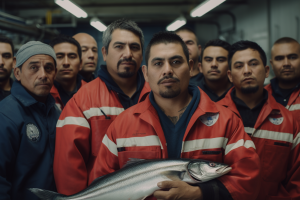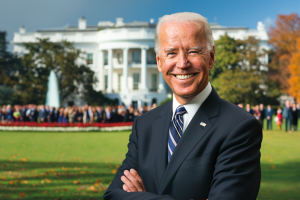Support migrant centric journalism today and donate

By Sanwar Ali:
Introduction
The E-2 Treaty Investor Visa Program is a highly sought after visa category for entrepreneurs and businessmen, and employees from treaty countries who wish to start a new office or enhance an existing business in the United States. This article will serve as a guide to the latest changes in the E-2 visa program, with specific focus on spouses and dependents, and the new visa fees.
Key Updates on E-2 Visa Program
The latest regulations governing the E-2 visa program, particularly for spouses and children of E visa holders and minimum investment amounts, came into effect on May 1, 2023. These changes are documented in the Foreign Affairs Manual (9 FAM 402.9-9).
Understanding the Substantiality Test
The E-2 visa program necessitates that the invested capital is "substantial" for the type of commercial enterprise you establish. The Foreign Affairs Manual defines an investment as "substantial" if it meets the proportionality test, ensures the treaty investor's commitment to the successful operation of the enterprise, and supports the likelihood of successful development and direction of the enterprise.
The Proportionality Test and Its Significance
The proportionality test is a crucial part of determining the substantiality of an investment. It involves comparing the amount of qualifying funds invested against the cost of the business. If an investor has invested 100 percent of the required funds in the business, the investment is deemed substantial.
Substantiality Test for E2 Renewal Applicants
According to Section 9 FAM 402.9-6(D), E2 investors who have already demonstrated a substantial investment to an Immigration Officer's satisfaction do not need to re-evaluate under the same criterion unless there is a change in ownership. This is a significant advantage for investors who are growing their businesses in the US.
Changes for Family Derivatives of E Visa Holders
Spouses and children of E visa applicants may accompany the principal E visa applicant as his or her derivatives in the same classification as the principal applicant. The latest changes, however, introduce a new rule based on the nationality of the spouse or child.
Derivatives of Treaty Countries
Spouses and children of E visa principals who possess the nationality of the treaty country receive visas valid for the maximum validity period authorized by the reciprocity schedule of their country of nationality.
Derivatives of Non-Treaty Countries
If the spouse or child is a national of a non-treaty country, they will receive an E2 visa valid as per the reciprocity schedule of their country of nationality. This is particularly interesting because the validity period of E2 visas varies among participating countries. So in some cases the spouse and dependent may receive a visa for a shorter period of time than the main applicant.
US E2 Visa Fee Increase
The US Department of State announced on June 17, 2023 that the nonimmigrant visa (NIV) application processing fee for treaty trader, treaty investor, and treaty applicants in a specialty occupation (nonimmigrant E category) visa will increase from $205 to $315. The increase went into effect on the same day.
The increase in the E2 visa fee is part of a broader increase in NIV fees that was approved by the US Congress in 2022. It is claimed that the increase is intended to help offset the costs of processing NIV applications and to ensure that the US government has sufficient funding to administer its visa programs.
The increase in the E2 visa fee is likely to have a modest impact on the number of E2 visas that are issued each year. However, the increase is likely to make the E2 visa less affordable for some applicants.
Intent to Depart for E3 Visa Applicants
E-3 visa applicants, which is another visa category for Australians, are now required to demonstrate their intent to depart the US at the end of their authorized stay by showing proof of ties to their home country.
workpermit.com helps with US Work Visa: L1, H1B, E2, and O1 Visas
There are various types of US visas that individuals can apply for, depending on their circumstances. Some of the most common employment-based visas include:
L1 visa: This visa is for intracompany transferees who work in managerial or executive positions or have specialized knowledge.
H1B visa: This visa is for specialty occupations that require theoretical or technical expertise in specialized fields.
E2 visa: This visa is for investors who have made a significant investment in a US business and, management or essential skills employees. Only certain nationalities can apply.
O1 visa: This visa is for individuals with extraordinary abilities in the arts, sciences, education, business, or athletics.
Workpermit.com is a specialist visa services firm with over thirty years of experience dealing with visa applications. For more information and advice, please contact us on 0344 991 9222 or at london@workpermit.com(link sends e-mail)





















